Electric bikes continue to grow in popularity across Ohio — from Cleveland’s lakefront paths to Columbus neighborhoods and Cincinnati’s hilly routes. But with more riders on the road, understanding Ohio ebike laws is essential for safe, legal riding.
Ohio has adopted a clear three-class system for electric bicycles, establishing rules for speed limits, where each type of e-bike can be ridden, and age or equipment requirements. This guide breaks down everything you need to know based on the latest updates to Ohio Revised Code §4511.522, plus additional rules many riders overlook.
Last Updated: November 2025
Regulations may evolve, so always check local city ordinances for the most current information.
Ebike Laws in Ohio
Ohio has some general laws governing ebike use across the state, such as helmet regulations. Other types of legislation, like where you can ride your bike, might be more specific to the location.
Read on for a quick rundown of essential rules all electric bicyclists in Ohio should know.

How Ohio Defines an Electric Bicycle
Under ORC §4511.522, an electric bicycle is defined as a bicycle that:
- has fully operable pedals,
- is equipped with an electric motor of 750 watts or less, and fits into one of the state’s three classes based on speed and assist type. (Official code reference)
Ohio does not classify ebikes as mopeds or motor vehicles. This means:
- no driver’s license required,
- no registration,
- no insurance needed,
- no motorcycle endorsement required.
What Class of Ebikes Are Legal in Ohio?
Ohio follows the nationwide Class 1 / Class 2 / Class 3 system:
Class 1 (Pedal-Assist Only)
- Motor assists up to 20 mph
- No throttle
- Legal on bike lanes, roads, and most multi-use paths
Class 2 (Throttle or Pedal-Assist)
- Motor assists up to 20 mph
- Includes throttle operation
- Also permitted on most bike paths unless locally restricted
Class 3 (Pedal-Assist Only)
- Motor assists up to 28 mph
- No throttle allowed above 20 mph
- Must be 16+ years old to ride
- Not permitted on many shared-use paths unless specifically allowed
This is a crucial point many riders misunderstand:
Class 3 is legal in Ohio, but its access is more restricted.
Where You Can Ride an Ebike in Ohio
Ohiostate law allows e-cyclists using Class 1 and Class 2 ebikes to use normal bike paths and shared-use paths (like those designed for both traditional bicycles and pedestrians).
However, this statewide rule doesn’t apply if the local governing authority — such as a county, municipal corporation, township, or parks agency — says otherwise. In short: The local authority’s rule wins out over the state rule.
Class 3 ebikes are NOT allowed on regular bicycle paths or shared-use paths unless they are adjacent to a highway. Again, the statewide Ohio law doesn’t apply if a local agency, like a township or municipal council, has an alternate rule for the use of e-bikes.
If you want to ride your ebike on the roadway in Ohio, this isn’t an issue. You can ride Ebikes on the road, but you must obey standard traffic laws and the rules of the road, just like motor vehicles. That means following directions like stop signs, speed limits, and traffic lights.
This is where things get more nuanced — Ohio has statewide rules, but local municipalities can override or add restrictions.
✔ Roads & Streets
All Class 1, 2, and 3 ebikes are permitted on roads where bicycles are allowed.
✔ Bike Lanes
- Class 1 & 2: Allowed
- Class 3: Allowed unless restricted locally
✔ Shared-Use & Multi-Use Paths
- Class 1 & 2: Generally permitted
- Class 3: Often restricted unless signs specifically allow them
Because Ohio cities can independently regulate Class 3 access, riders should check local rules.
✔ Natural-Surface Trails (MTB, hiking, equestrian)
Ohio follows the typical rule:
Electric bicycles are usually prohibited unless explicitly posted as allowed.
Most mountain bike trails, nature preserves, and hiking trails do not allow motorized assistance.
✔ Sidewalks
Ohio does not explicitly ban ebikes on sidewalks statewide, but:
- Many cities (Columbus, Cleveland, Cincinnati) have local prohibitions
- You must always yield to pedestrians
This is one of the most commonly misunderstood areas — sidewalk rules depend entirely on the city.
Under Ohio Revised Code §4511.711, you may only ride an electric bike on a sidewalk when you are using it as a regular bicycle – that is, with the motor not engaged. Riding with the motor running on sidewalks is prohibited at the state level, except for law enforcement officers on duty.
On top of that, cities can add their own rules about whether bicycles and ebikes are allowed on sidewalks in certain districts (for example, many downtown business areas). Always check your local ordinances and yield to pedestrians.
Ohio Ebike Age & Helmet Requirements
Ohio has specific rules for Class 3 riders:
✔ Age Requirement
- Riders must be 16 years or older to operate a Class 3 ebike in Ohio (younger riders may only ride as passengers).
✔ Helmet Requirement
- Everyone operating or riding on a Class 3 ebike – regardless of age – must wear a helmet that meets CPSC or ASTM standards, as required by ORC §4511.522(D).
There are no statewide helmet requirements for Class 1 or Class 2, but wearing one is strongly recommended.
Learn more about helmet laws across the U.S. in our comprehensive guide, which also includes tips on how to pick a well-fitting helmet.

Do You Need a License to Ride an Ebike in Ohio?
No, there’s no need to get a formal driver’s license to ride an ebike in Ohio. That’s great news for you since it means no waiting in line at the DMV!
You also don’t have to stress about registering your electric bicycle like you would a car or deal with getting ebike insurance.
That said, ebike insurance can still be a savvy investment, even if you aren’t obligated to get it. Depending on the type of coverage you get, your ebike insurance can cover costs like hospital bills and damage to your bike if you’re in an accident.
In the big picture, investing in insurance now can save you money later. The cost of hospital bills after a serious accident can be high, for example. Having coverage can bring peace of mind (and ease the burden on your bank account).
Equipment Requirements for Ebikes in Ohio
Ohio requires ebikes to meet certain safety standards:
✔ Required
- Functional brakes
- Manufacturer-applied Class label showing class, wattage, and speed capability
Most reputable brands, including Velotric, comply with this automatically.
✔ Recommended (but not required)
- Lights and reflectors for nighttime
- Bell or audible warning device
- High-visibility gear
- UL-certified battery systems for added safety
Local Ordinances: What Riders Often Miss
Ohio gives cities the authority to restrict:
- Class 3 bikes on multi-use paths
- Ebike riding on sidewalks
- Access to park trails
- Speed limits in densely populated cycling areas
This means Columbus rules are not the same as Cleveland, and neither is the same as Akron or Toledo.
Recent discussions in several Ohio cities have included proposals on speed caps and sidewalk restrictions due to the rise of e-bike-related incidents. Nothing major has passed statewide, but local enforcement varies.
Always check your city’s website for bicycle ordinances before riding.
Penalties for Violating Ebike Laws in Ohio
Ohio does not impose criminal penalties for misusing an ebike, but violations can result in:
- Fines (usually municipal)
- Confiscation in cases of repeat violations
- Liability in collisions if riding illegally
The most common issues involve:
- Riding Class 3 bikes on prohibited paths
- Underage riders on Class 3
- Riding on sidewalks where banned
Violations of Ohio’s e-bike rules – for example, riding on prohibited paths, failing to wear a required helmet on a Class 3 e-bike, or not having proper lights at night – are generally treated as traffic misdemeanors under state law (such as ORC §§4511.522, 4511.56, and 4511.711).
Most first-time offenses are classified as minor misdemeanors and can carry fines, while repeat violations within one year can escalate to fourth- or third-degree misdemeanors, with higher penalties. On top of that, riders may still face civil liability in the event of a collision.
Safest Way to Ride an Ebike in Ohio (Rider Tips)
To stay safe and compliant:
- Use lights at dawn, dusk, and night
- Keep speeds reasonable on crowded paths
- Use your bell before overtaking pedestrians
- Wear a helmet regardless of class
- Respect local signage — especially in parks
- Stick to Class 1 or 2 if riding multi-use trails regularly
A predictable rider is a safe rider.
Final Thoughts: Ebikes Are Welcome in Ohio — With the Right Knowledge
Ohio is a generally ebike-friendly state. Its adoption of the three-class system makes it easy for riders to understand what’s legal, where they can ride, and what equipment they need.
The biggest takeaway is this:
Statewide rules are consistent, but local path and sidewalk regulations vary.
Before hitting your favorite trail, check your city’s bicycle ordinance — and ride responsibly.
If you're looking for Class 1, 2, or 3 compliant ebikes with UL-certified safety and multi-terrain capability, explore Velotric’s full lineup, designed to stay fully compliant with Ohio’s ebike laws.
Velotric has various options to suit your needs. For urban riding, try the Discover 3. If you want to tackle rougher terrain, a fat-tire bike like the Nomad 2X is preferable.
Data Sources
The above information is sourced from these websites and was last updated in November 2025. If you have any questions, you can visit the following sites directly for confirmation.
- Ohio Revised Code §4511.522 - Electric bicycles; labels; permitted use; violations
- Ohio Revised Code §4511.01 – Definitions
- Ohio Revised Code §4511.711 – Driving on sidewalk
- Ohio Revised Code §4511.56 – Bicycle signal devices
- Ohio Administrative Code 1501:46-13-05 – Motor vehicles, bicycles, and personal mobility devices



























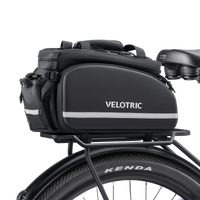

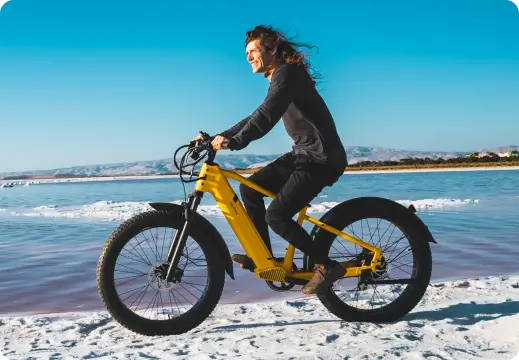







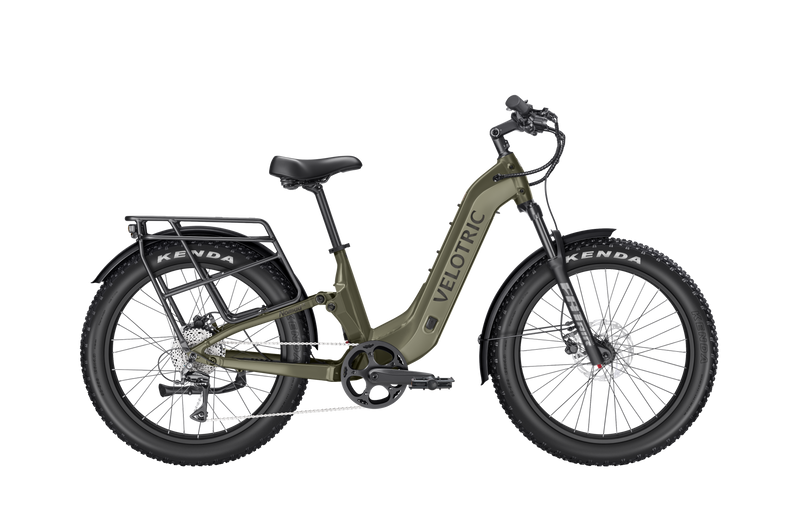
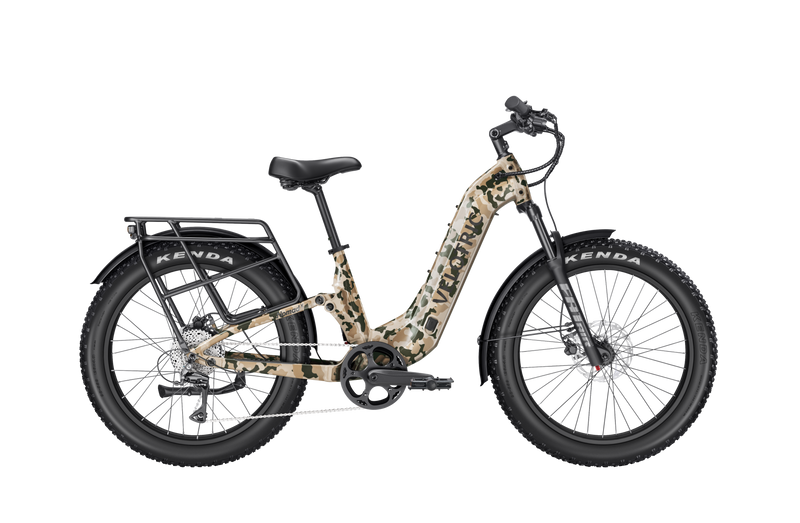
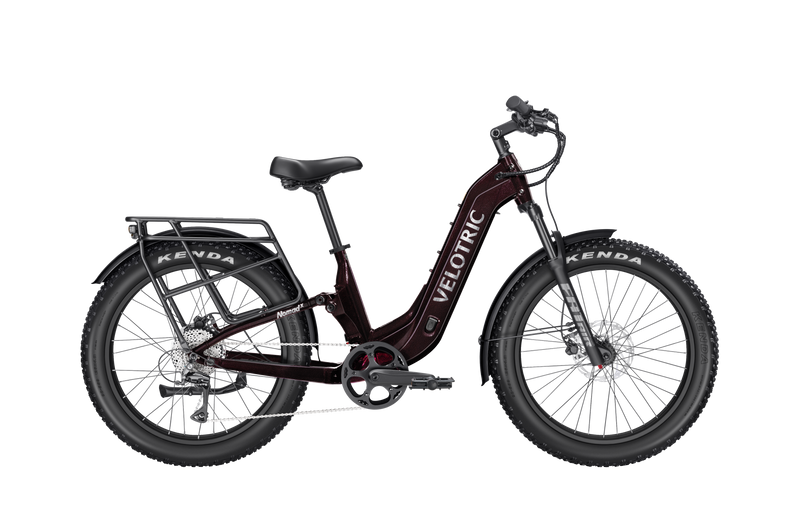
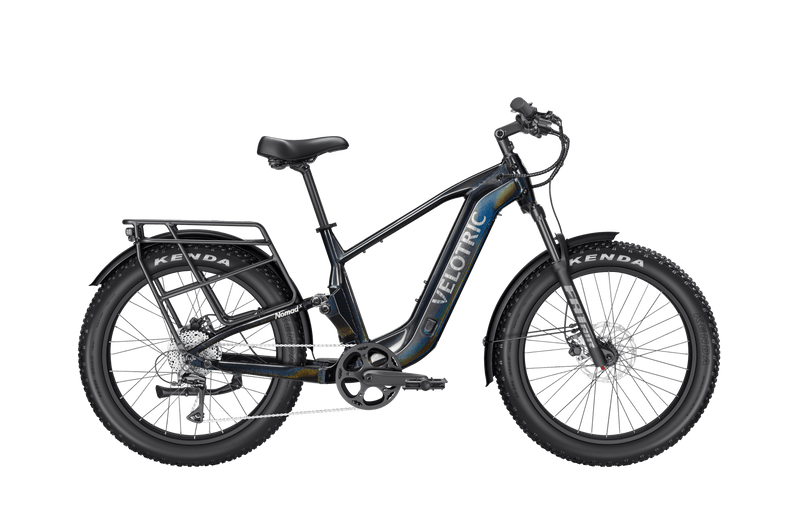
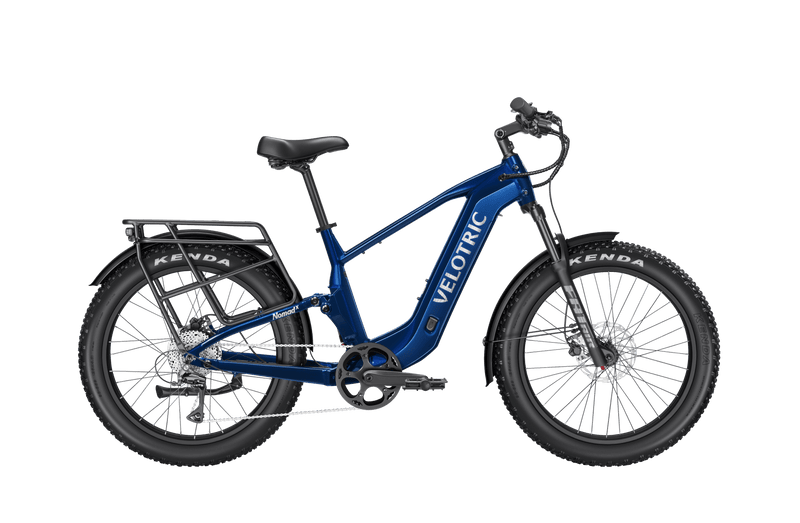
1 comment
We have lots of older people who have higher end e-bikes which are typically class 3. Wouldn’t a speed limit make more sense than not allowing class3?